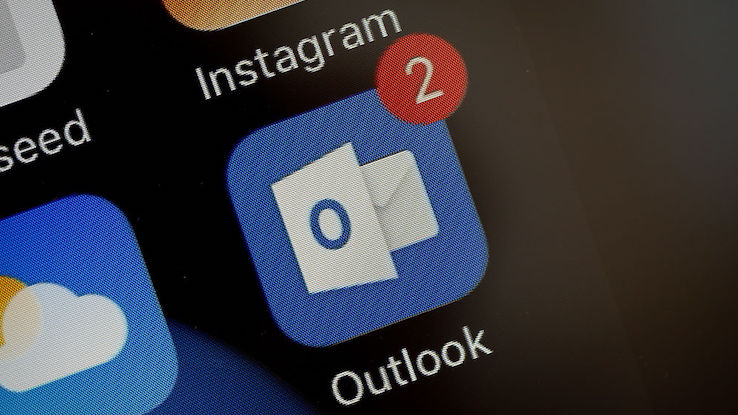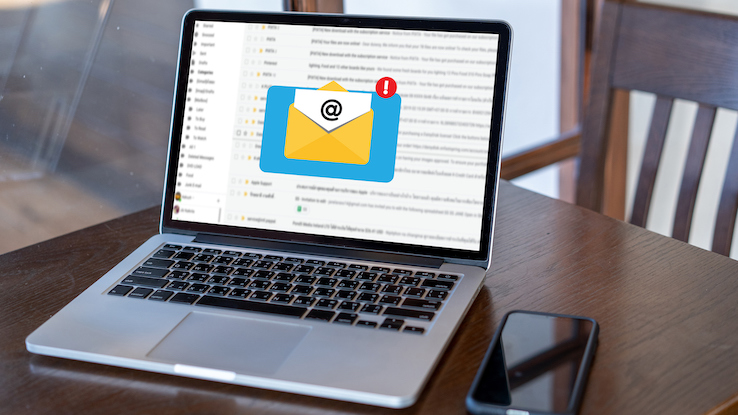As Easy as Falling Off a Log Origin

Although Microsoft's Outlook is a popular personal information-management client that's long been bundled as part of the company's Office suite of programs, it may be most popular (and best-known) as an email client. With everything from calendars to task lists and other convenient features, Outlook is a robust tool for helping you communicate and stay organized. But how do you get into it? Learn more about accessing Outlook, along with some other helpful information about the program, to make the most of using this application.
Signing Into Outlook: Your Options
There are a few different ways you can sign into your Outlook account depending on whether you want to access it from an internet browser window or from the program or app downloaded to your desktop or mobile device.

To access the email client from a browser, visit the Outlook sign-in page. Find and click on the button labeled "Sign in" near the top of the screen. This takes you to a new page where you can enter your email address, the phone number associated with your email address or your Skype username, all of which are acceptable options for accessing your account. Enter your preferred login information, and click the "Next" button. You'll see a field where you'll enter your current password for your account, along with links to reset your password if you've forgotten it or to send a reminder to another email address you've listed to assist with password recovery. Type in your password and click the "Sign in" button. Once you've entered the right credentials, your browser window will open your Outlook inbox.
If you're using Outlook as a standalone program or app on your desktop computer or your smart device, the process is relatively similar. Instead of visiting a URL in an internet browser, click on the program's icon on your device to launch it. You'll see fields for entering your email address and password; once you've filled these out and submitted them, you'll have access to your Outlook account. These clients typically leave you logged into your account automatically so you're signed in already when you access them again, but you can sign out manually if you prefer not to leave your account open.
If you're using Outlook as part of a Windows user account, you'll remain logged in at all times after your first login. You'll need to sign out of Windows completely to keep others who use your computer from being able to get into your Outlook email account.
If you don't have access to Outlook yet and want to create an account to use the program, signing up is simple online. Again, visit the Outlook sign-in page. Instead of clicking on the button to sign in, however, look for the button labeled "Create free account" and click on it. This takes you to a page where you can enter your preferred email address username, and you can also choose whether you want "@outlook.com" or "@hotmail.com" for its domain. This decision is up to you; even if you choose Hotmail, you'll still access your account using the Outlook sign-in page.

Next, you'll choose a secure password and can opt to receive news, tips and product offers from Microsoft. On the next slides, enter your name, birthdate and region, and then fill out the captcha form to create your account. After completing the signup process, you can begin using your Outlook account and the myriad features included.
Troubleshooting Tips: Logging Into and Out of Outlook
If you're unable to sign into Outlook by following the steps above, there are a few troubleshooting tips you can follow to access your account. First, start with the basics: Make sure caps lock isn't turned on, as passwords are case sensitive, and double-check the spelling of your username and password. If you can't remember your password, you can reset it and recover your Outlook email account after providing a few key pieces of information.

Also, think about the last time you logged in. If it was more than 365 days prior, Microsoft has likely deleted and purged your account, which it does after 365 days of inactivity. If this has happened, your account isn't recoverable and you'll need to create a new one. It's also possible that Outlook itself is experiencing service issues that limit your access to your inbox. Check the service status here to find out if the site is running properly or not.
Whether you're on a public computer or you need to sign into a different account, you might also need to sign out of Outlook — and could encounter some bumps along the way. To sign out of the program when it's open in an internet browser window, click on your account picture near the top of the window and click on "Sign out." This may also appear as a circle with your initials in it if you haven't added a user picture before.
Sometimes, however, the picture or icon may not show up. Microsoft notes that this is most likely to happen if you have ad-blocking software installed and running. Disable this to see if it fixes the issue. If turning off the ad blocker doesn't resolve the issue, visit the Outlook Accounts page to access your profile and see other options to sign out manually.
If you want to sign out of your Outlook account that's running on your desktop computer as part of Windows, you'll need to sign out of Windows completely. Press Ctrl + Alt + Delete to bring up a dialogue box that gives you the option to log off. Click "Log off" and allow your computer to complete the process, which can take a few minutes.
Source: https://www.questionsanswered.net/tech/how-log-outlook?utm_content=params%3Ao%3D740012%26ad%3DdirN%26qo%3DserpIndex&ueid=26824065-ef2e-4765-9e32-2bd6a43c43d1
0 Response to "As Easy as Falling Off a Log Origin"
Enregistrer un commentaire